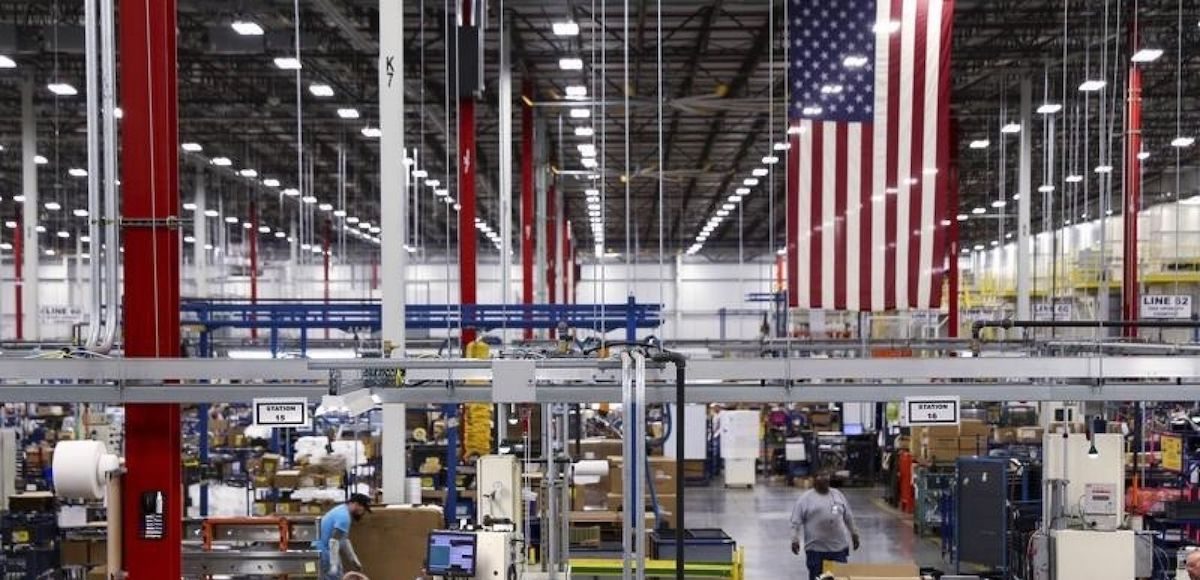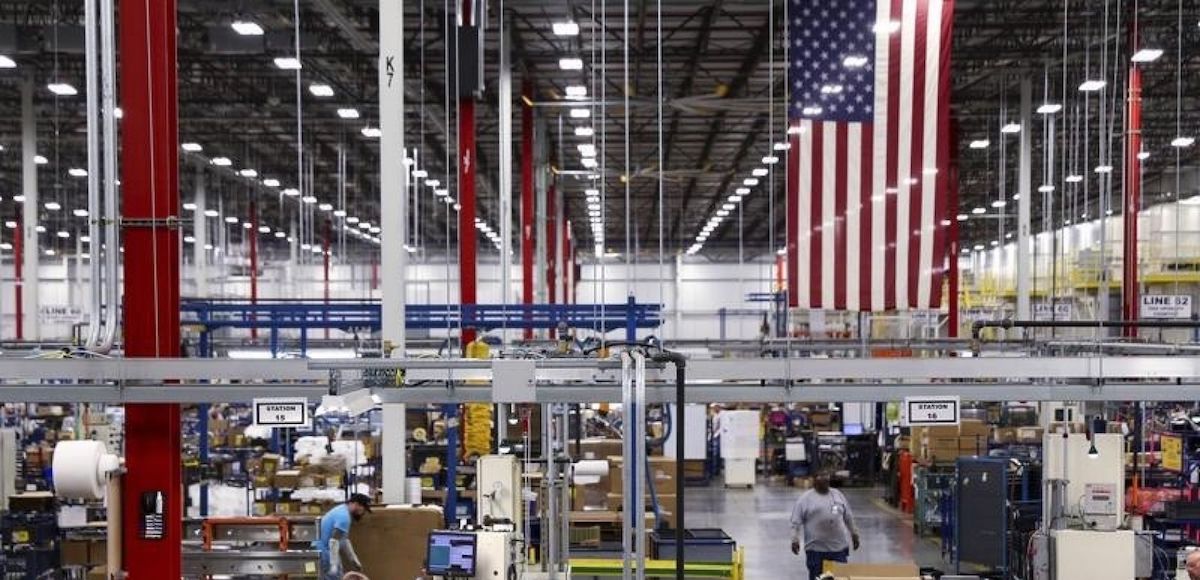

Workers assemble built-in appliances at the Whirlpool manufacturing plant in Cleveland, Tennessee August 21, 2013. (Photo: Reuters)
The Institute for Supply Management PMI, a gauge of national factory activity, showed the manufacturing sector grew more than expected in May. This is the 8th straight month that the closely-watched manufacturing index surpassed the median forecast.
The ISM manufacturing index, previously known as the NAPM Survey, is a monthly survey. Levels at 50 or above indicate growth in the manufacturing sector. Levels above 43 but below 50 indicates that the U.S. economy is still growing, but the manufacturing sector is contracting. Level below 43 indicates that the economy is in recession.
The details of the report are actually much stronger than the headline number indicates. New orders continued to post at a solid rate (59.5), including exports (57.5), and backlogs are also on the rise (55.0).
Production remains very strong, import orders continue to rise, and deliveries are slowing. These are all signs of a strengthening manufacturing sector. Employment, at 53.5, is also on the rise. Because they are increasing at a higher rate than we saw in April (52.0), we can expect solid numbers for manufacturing payrolls in the Labor Department’s monthly employment report due out tomorrow (Friday).
Of the 18 manufacturing industries, 15 reported growth in May in the following order: Nonmetallic Mineral Products; Furniture & Related Products; Plastics & Rubber Products; Machinery; Primary Metals; Food, Beverage & Tobacco Products; Electrical Equipment, Appliances & Components; Paper Products; Miscellaneous Manufacturing; Computer & Electronic Products; Transportation Equipment; Chemical Products; Fabricated Metal Products; Petroleum & Coal Products; and Printing & Related Support Activities.
Only two industries–Apparel, Leather & Allied Products; and Textile Mills–reported contraction in May compared to April.
“Comments from the panel generally reflect stable to growing business conditions, with new orders, employment and inventories of raw materials all growing in May compared to April,” said Timothy R. Fiore, Chair of the Institute for Supply Management® (ISM®) Manufacturing Business Survey Committee. “The slowing of pricing pressure, especially in basic commodities, should have a positive impact on margins and buying policies as this moderation moves up the value chain.”






